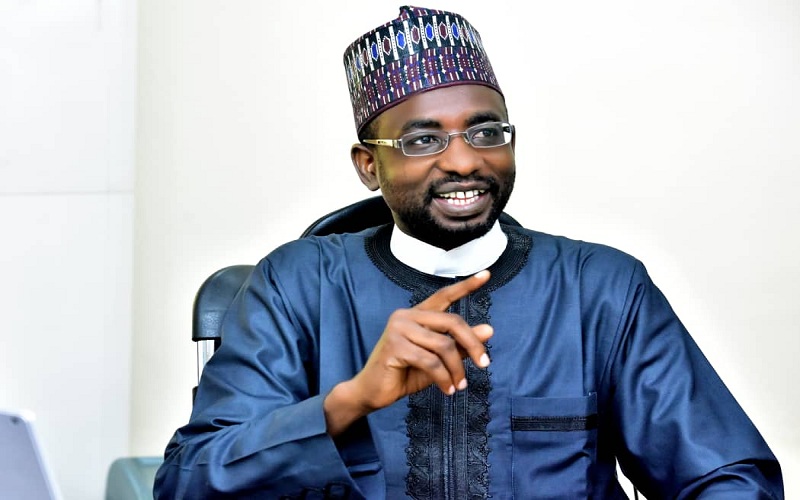Kashifu Inuwa Abdullahi is not new in Nigeria’s IT industry, having graduated as a Computer Scientist from the Abubakar Tafawa Balewa University, Bauchi. He worked for nine years (2004-2013) in Galaxy Backbone and held various positions there including IP Network Field Engineer, Senior Network & Lead, IP Operations Team, and Senior Solution Architect & Lead Technical Solution Design Team.
Abdullahi joined the Central Bank of Nigeria (CBN) in 2014 as a Technology Architect, developing Technology Architecture Repository that gives 360 views of the Bank’s IT infrastructure and easy decision on new IT investment. He was also part of the team that executed software license rationalization which has increased cost savings for the bank in license annual subscriptions.
Joining NITDA with very rich exposure in the IT space, including being trained as a Massachusetts Institute of Technology – MIT Sloan – strategist, Abdullahi remains the first Cisco Certified Internetwork Expert (CCIE) in Nigeria’s Public Sector.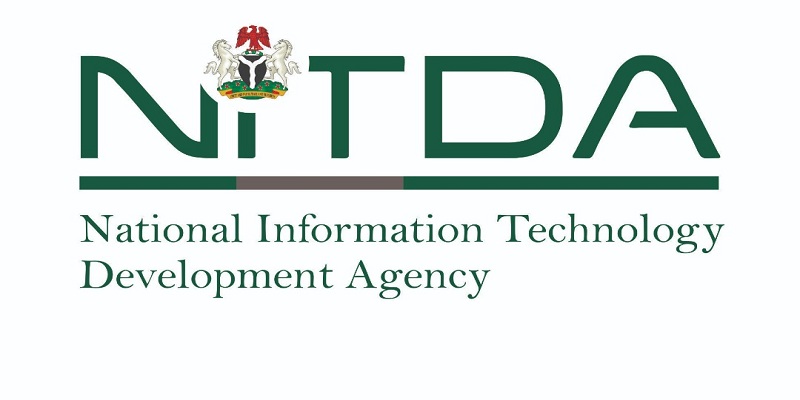
On August 20, 2020, it will be exactly one-year Kashifu Inuwa Abdullahi assumed duties as the Director-General of the National Information Technology Development Agency (NITDA) following his appointment to that position in 2019 by President Muhammadu Buhari.
Then 39-year-old Abdullahi took over from Dr Isa Ali Ibrahim Pantami, appointed then as Minister-designate of the Federal Republic of Nigeria. Until his appointment in 2019, Abdullahi was a principal officer at the Central Bank of Nigeria (CBN), who was on secondment to NITDA as a Technical Assistant to Dr Pantami.
The NITDA DG has been reflecting on the appointment and what the agency has been able to do under him in the last one year, describing his experience so far as an amazing journey.

“I must say, it was an amazing journey. This isn’t something that I expected or even envisaged. It was indeed a pleasant surprise. It, however, shows the confidence my boss and mentor, Dr Isa Ali Ibrahim (Pantami), has in my ability to the extent of recommending me to President Muhammadu Buhari, GCFR, to take a giant leap step into his shoes.
“It is a great honour, and I am putting in my best not to disappoint the expectation of my boss and mentor, Mr President, Nigerian Youths as well as the country as a whole,” he said in a recent interview.
For somebody who is not new in Nigeria’s IT sector, and has followed developments in the sector, Abdullahi believed he was on familiar terrain when he assumed the headship of the IT Agency and has from every indication, not disappointed the expectations of his predecessor, Mr President and indeed, the Nigerian youth.
As a technical assistant to his predecessor, now Minister of Communications and Digital Economy, Dr Isa Ali Pantami, Abdullahi coordinated Local Content initiatives that had increased ICT local production by over 200% in 2017.
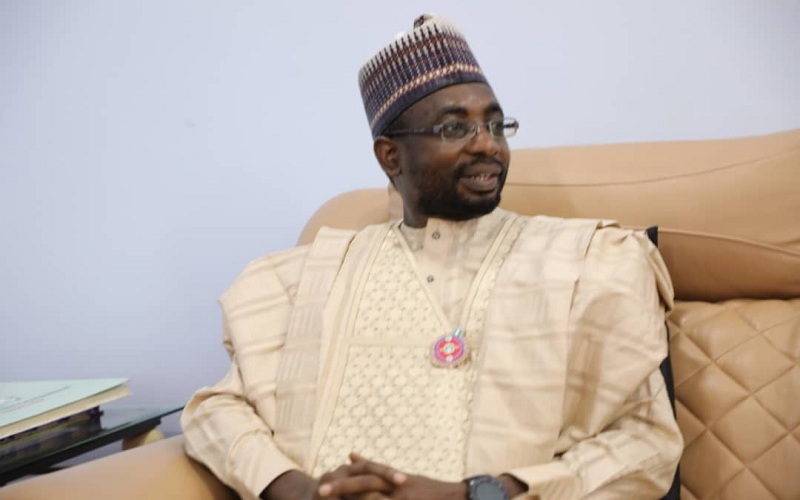
“I am at home being at the helm of affairs in NITDA. As a person that is open to new approaches and strategies, with the experiences I have gained for the last 15 years in the IT sector spanning between the private and the public sector and through unceasing study, my team and I have worked diligently to ensure the continuous development of the IT sector in Nigeria over the past 12 months.
“Remember, I picked it up from a good place to consolidate upon, considering the foundation laid by my boss and mentor, Dr Isa Ali Ibrahim Pantami.”
Abdullahi reiterates that NITDA is implementing a strategic roadmap for the development of Nigeria’s IT sector, consisting of 7 pillars that are in alignment with the 8 pillars of the National Digital Economy Policy & Strategy.
NITDA has rolled out several policies, regulations, and programmes, focusing on those areas. However, bearing in mind that the roadmap is set to expire this year just like the Nigeria Economic Recovery and Growth Plan (ERGP) which it draws from, NITDA has already commenced reviewing the roadmap as well as developing the next plan, which will soon be launched.
Abdullahi believes that this review is in alignment with and takes cognizance of the National Digital Economy Policy and Strategy (NDEPS), the Nigeria Economic Sustainability Plan (NESP) and other important plans and policies of the Buhari administration.
As a believer in the creative and innovative ingenuity of Nigerians, Abdullahi’s 12 months in the saddle as NITDA DG has witnessed a continuation of the vigorous drive to promote patronage and adoption of local content by MDAs in Nigeria.
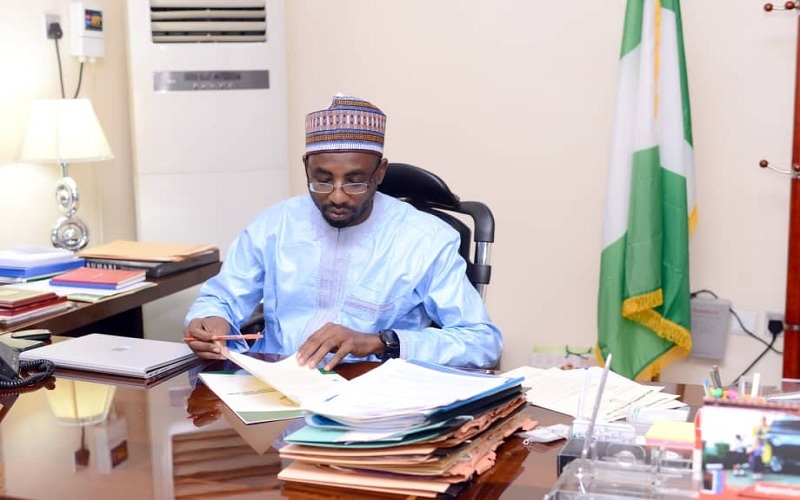
According to him, “NITDA has demonstrated great support and has ensured improved patronage of indigenous OEMs in the last 3 years. It is a fact that the purchase of local devices by MDAs is unprecedented within these years compared to previous years before 2018.
“For instance, in 2015-2016, less than 250,000 devices were sold by indigenous Original Equipment Manufacturers (OEMs). However, due to the intervention of NITDA, records show that in 2018/2019 alone OEMs sold three times the numbers sold prior to 2017 with about 778,886 of locally assembled devices sold in 2018 and 2019.”
Though there are some challenges with the implementation of the Presidential Executive Order 003 for promotion of local content in the procurement of MDAs and the NITDA issued Guidelines for Nigerian Content Development in ICT, which also mandates MDAs to purchase Nigerian hardware products, NITDA is implementing the Executive Order and Guidelines vigorously through active surveillance and IT Projects assessment and clearance process of the Agency.
The NITDA boss admits that procurement law requires OEMs to either bid directly or work with other contractors to bid to ensure transparency and value for money, but if MDAs violate the process, NITDA can then be notified for action.
“There is also a challenge with the quality of some of the indigenous brands. In an effort to address this challenge, in 2018, we mandated these OEMs to go through a rigorous certification process requiring them to have ISO 9001:2015 for quality management systems.
“This, we believe, will ensure they are able to provide products that meet quality and regulatory requirements always. Currently, only 3 out of 10 previously registered OEMs have been fully certified,” he said.
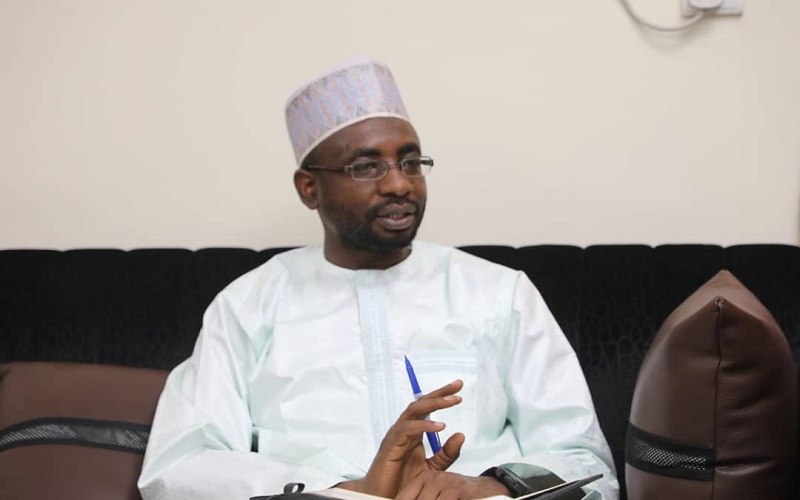
Followers of developments in the IT sector argue that the Nigeria IT Policy is due for review especially in the light of the global changes occasioned by the outbreak of the COVID-19 Pandemic.
For Abdullahi, any review of the IT Policy rests within the powers of the Federal Ministry of Communications and Digital Economy because it handles policy-related issues even though he insists that the National Digital Economy Policy and Strategy (NDEPS), unveiled by President Muhammadu Buhari, during the 2019 e-Nigeria International Conference, effectively replaces the National IT Policy.
NITDA has been at the forefront of supporting the Federal Government’s digital economy vision and drive even before it was unveiled by the Minister of Communications and Digital Economy in 2019.
It is on record that NITDA has achieved a lot in building Nigeria’s digital economy through the implementation of a roadmap for the development of the Nigerian IT sector which consists of 7 pillars that are in alignment with the 8 pillars of the Digital Economy Policy & Strategy and the Nigeria IT Policy.
For instance, in promoting a digital Nigeria, NITDA from August 2019 to date has launched and is implementing the following regulatory instruments: Nigeria e-Government Interoperability Framework (Ne-GIF); Nigeria Cloud Computing Policy (NCCP); and Nigeria ICT Innovation and Entrepreneurship Vision (NIIEV).
Others include the Framework and Guidelines for ICT adoption in Tertiary Institutions; Guidelines for Nigeria Content Development ICT as amended; and Data Protection Implementation Framework.

